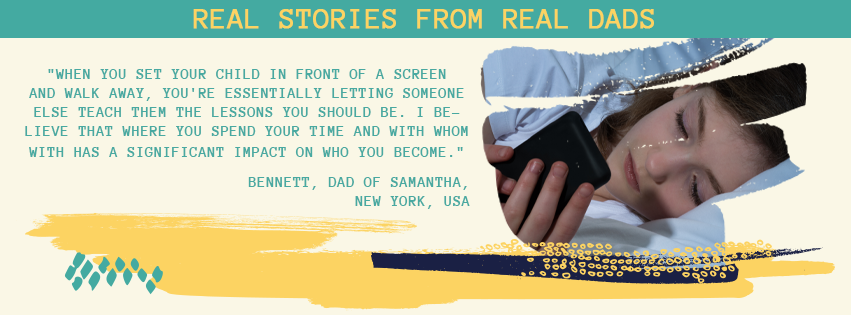
Bennett F. is a researcher who studies human behavior with the goal of optimizing our personal relationships. Through his research, he’s learned not only how to monitor his own self-expression better, but how to choose his words more carefully and be more aware of where the other person is emotionally in the moment they will receive them. Now, he says, he hopes to give his twelve-year-old daughter, Samantha, the tools to do to the same.
He admits that these days he has to work backwards from being an overbearing, concerned father, on the verge of meddling, to trying to show Samantha that he supports her choices, even if he doesn’t understand or always agree with them. He encourages her to take time to construct her own opinions without concern for anyone else’s feedback, particularly other men.
This might sound strange to a lot of parents, he tells me. But one of the proudest moments I’ve had as a father is when she told me she didn’t care what I thought about something.
“She had bought a new backpack that I didn’t like and, well, we both have a tendency to be a little dramatic, so we got into a bit of a heated debate about it. I felt like it sent the wrong message and I told her so. When she replied that she didn’t care what I thought because she liked it and she was the one who would be using it, this huge smile just spread across my face. She had listened to me and stood up for her own opinion.”
Bennett’s research has also taught him the importance of touch and the effect it can have on mood. One of his favorites is the 20 second therapeutic hug which is known to reduce stress and lower the hormones associated with it. “Honestly, hugging doesn’t come naturally to me, or really being touched much in general.” he admits. “So I wasn’t surprised when Samantha was also initially opposed to me trying to hug her more often. It took about a month of me making her laugh before I did it for her to let her guard down.” Other times, he says, when he wants to try and lighten her mood, he’ll sing what he’d normally just speak to her and it has a similar positive effect.
He also encourages Samantha away from screens and social media—outlets he believes do more harm than good to young minds—as much as he can, urging her instead to go explore outside, read a book, or pour her energy into one of the many crafting projects she has going on at any given time. In turn, he does the same, and stays off his phone whenever they’re doing something together.
When you set your child in front of a screen and walk away, you’re essentially letting someone else teach them the lessons you should be, he says.
